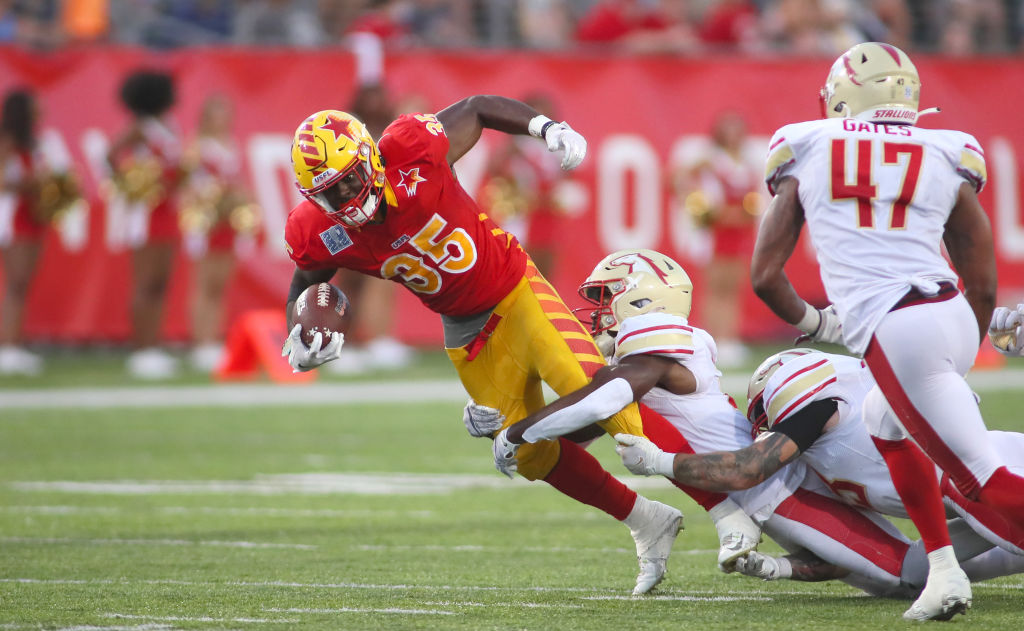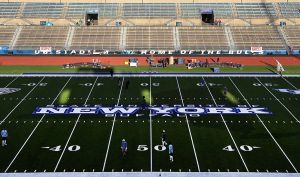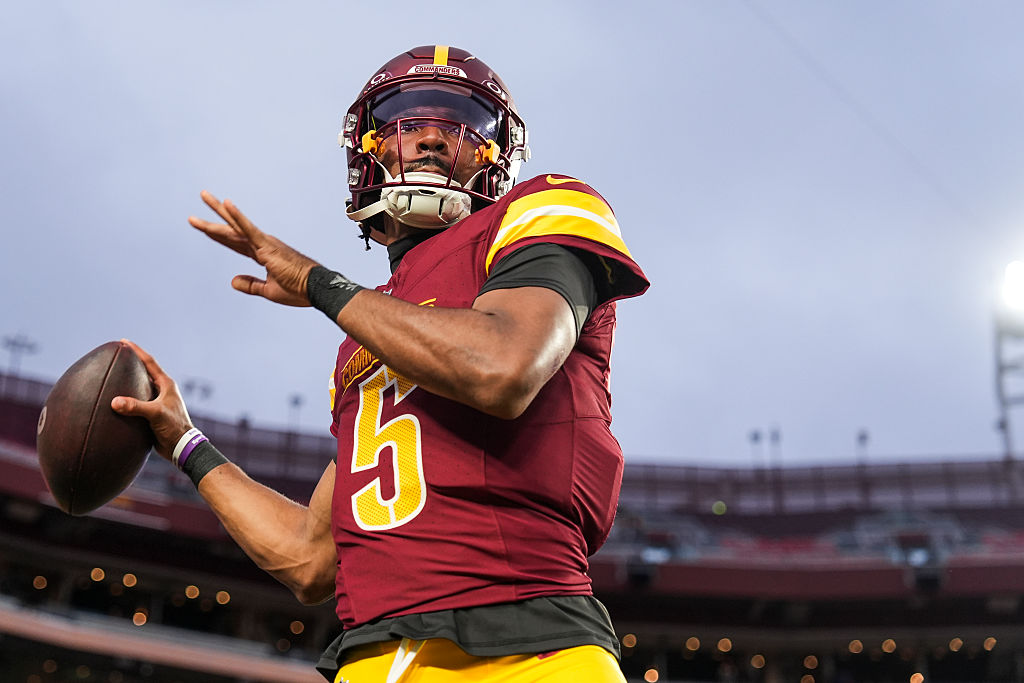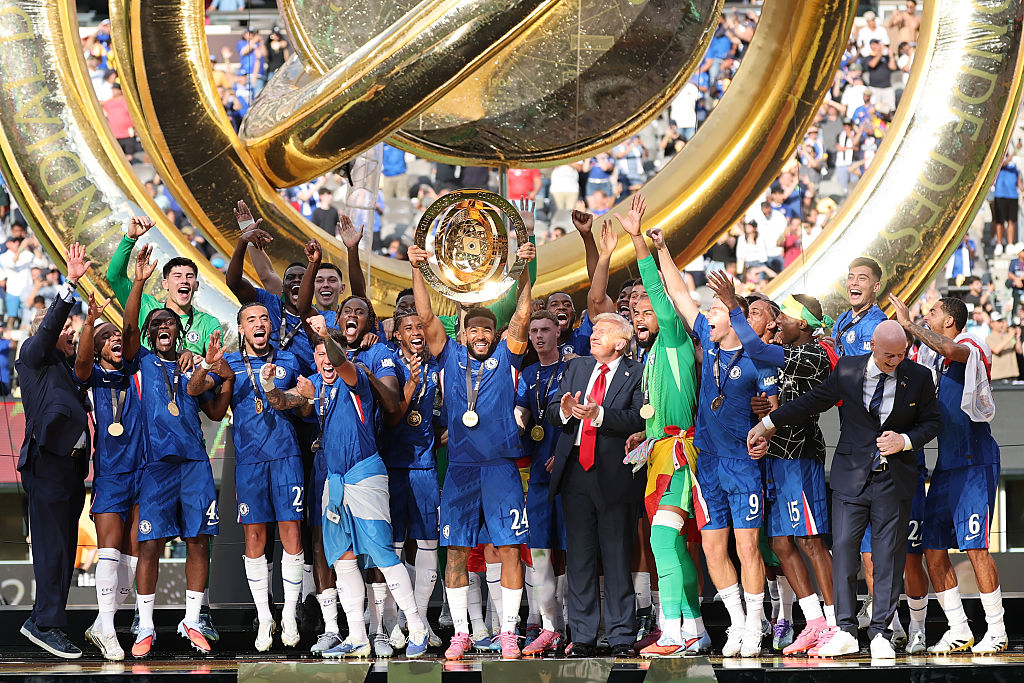America’s appetite for football is seemingly never satisfied. A couple leagues are still working to crack the code on maintaining a professional alternative to the NFL.
Even with the NFL adding a seventeenth regular season game in 2021, the league’s off-season is significantly longer than the other major team sports. Whereas there is typically a four-month layover from the end of the NBA Finals and the Stanley Cup Final and the beginning of the next basketball and hockey seasons respectively, and Major League Baseball has about five months off from the close of the World Series to Opening Day, the NFL is dormant for nearly seven months. And college football’s off-season is roughly a month longer.
That’s a lot of blank space for a sport that routinely draws huge interest. Of the 100 most watched programs on TV last year, 82 of them were football games.
So it should come as little surprise that in recent years, several upstart football brands have been launched or revived to capture all those unclaimed weekends. Competing against the NFL is still a pipe dream for these outfits, but they’ll gladly swoop in during the off-season and snag as many eyeballs as they can.
Sure, the NFL is great at manufacturing spectacle out of nothing. They can get bored viewers to tune into the scouting combine, three days of the NFL Draft, and even a primetime regular season schedule unveiling. But fans ultimately want the sport they fell in love with, and talking head shows will eventually lose out to actual football for all but the most committed NFL loyalists.
The XFL will begin its third iteration less than a week after this year’s Super Bowl on February 18, with major networks like ABC, ESPN, and FX carrying games. Back in 2020, the XFL held its first season in almost 20 years, but that had to be swiftly curtailed after five weeks of play because of the Covid lockdowns.
The league is still largely synonymous with its first incarnation — a crass and outrageous brainchild of WWE chairman Vince McMahon that lasted only one season in 2001. McMahon revived the league in the late 2010s after an ESPN documentary chronicled many of the wilder elements of that initial XFL season. He vowed that the league would be more respectable this time around, with less gratuitous violence and no cheerleaders (the original XFL season featured an infamous stunt where the league brought cameras into the cheerleaders’ locker rooms).
For all the XFL’s scandalous stunts that made it a curiosity and a punchline, it had some successes that suggested, with a few tweaks, it could have had a viable future. The MVP of that 2001 XFL season was quarterback Tommy Maddox. The following year, Maddox ended up taking over as starting QB of the Pittsburgh Steelers, guiding the team to a division title and a playoff win and netting himself AP Comeback Player of the Year honors in the process. The NFL also borrowed a few broadcasting innovations that the XFL had used.
McMahon is no longer involved. The XFL filed for Chapter 11 bankruptcy in the summer of 2020 and was sold for $15 million to a business group that includes Dwayne “The Rock” Johnson. The Rock seems like less of a visionary and more of a celebrity steward than McMahon, though at least he and the league have been loading up the XFL coaching ranks with recognizable names. Wade Phillips is coaching the Houston Roughnecks. Rod Woodson is coaching the Vegas Vipers. Hines Ward is the head coach of the San Antonio Brahmas. Longtime Oklahoma Sooners coach Bob Stoops came out of retirement to lead the Arlington Renegades.
The other upstart league looking to pick off market share has a considerably different reputation. Older football fans will recall three seasons of the USFL back in the 1980s. Though the USFL lost money, it provided the strongest competition the NFL has seen since the AFL, and proved to be the breeding ground for several future NFL Hall of Famers, including Jim Kelly, Reggie White, and Steve Young. For a bit, USFL owners were discussing no longer just being a spring league and going head-to-head with the NFL by scheduling fall games. In 1986, the USFL filed an antitrust lawsuit against the NFL, claiming it had established a monopoly with television rights. At the time, one of the USFL owners was Donald Trump, who was using the suit as an angle to force a merger with the NFL. The USFL won the suit, but was awarded exactly one dollar. The league shut down months later.
Last year, former owners from the original USFL filed a lawsuit against FOX Sports, the owners of the rebooted version of the USFL, for allegedly using old branding and logos without permission. So like the XFL, the new USFL is a husk of a brand slapped on another product.
Whether or not the new USFL has any connection to its past matters less than the fact that it’s up and running. Unlike the new XFL, this USFL has actually finished a season, in 2022, though almost all the games were played in Birmingham, Alabama. This year, things are rolling out incrementally, with four home sites for the eight teams in the league. This will likely help promote fan engagement since some teams will actually play in front of the market they represent. Yet it is still decidedly strange that the Philadelphia franchise will play all of its “home” games at Ford Field in Detroit.
Where the USFL can win converts is with the rulebook, which is a nice blend of NFL and college rules, with a couple other twists thrown in. The USFL’s overtime format mirrors college football’s shootout approach. Defensive pass interference penalties are only 15 yards if the infraction is beyond 15 yards and not intentional. Teams have the option of going for two- and three-point conversions after touchdowns. When considering an onside kick, teams can try the traditional approach or attempt to convert a 4th and 12 with their offense from their own 33-yard line to retain possession. The 2023 USFL season is slated to run from April 15 to July 2.
Public interest in year-round football is clearly there, yet we’re still waiting for a longstanding successful alternative to the NFL. The XFL barely survived the pandemic, and one of the upstarts that was founded alongside them, the Alliance of American Football, folded after eight weeks of play in 2019, failing to complete its first season. The odds are stacked against them, but as an old football adage goes, that’s why they play the games…

























